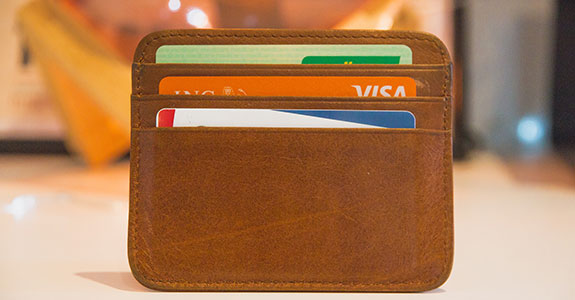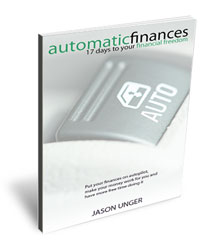
People with bad credit could experience much higher costs for the financial products they qualify for. Alternatively, they may have been rejected for credit or loans altogether.
Data shows that UK adults are at a new all time low for their confidence and ‘financial knowledge’. Similarly, 4 out of 10 American Adults “have no idea” how their credit score is calculated by lenders, which was the most popular answer when trying to establish how we feel about our financial situations.
This indicates that a lot of people have a tendency to bury their head in the sand or ignore the role they have to play in managing their financial self. Neglecting to nurture your credit score could lead to a negative or unattractive credit portfolio and being blissfully unaware of this could be really quite dangerous and may lead to a nasty shock when consumers are turned away from a loan or service they desperately need. Loans for bad credit customers are still possible, its just important to understand the whole picture.
What Is Bad Credit?
A credit report is historical data that details how responsible and diligent a person is at meeting their financial commitments. This is traditionally sourced from banks, online lenders, credit card companies and collection agencies. It will include any late or missed payments on loans you have taken out in the past, but it will also include the more severe credit mistakes that would have marked a profile. A credit report is historical, but different actions stay on the report for different lengths of time; it can stretch back as long as 10 years.
This does make credit scores a little more complicated as they may no longer be an accurate reflection of your finances or your ability to repay a loan now. This detailed list outlines what you might be looking for to work out why your credit score is bad or just not as high as you had initially anticipated:
- Judgements – This could be something like a CCJ (County Court Judgement), which is an order enforced by a court of law that demands payment for outstanding credit. Lenders or financers will only go to this extreme when they believe it is the only way to get the money they are owed. It looks bad to prospective lenders because you have already shown that the only way to get money out of you is via the court. This is a long process and could be expensive, meaning that you are likely to qualify for an unsecured loan.
- Bankruptcy – This is undoubtedly the most harmful to your credit score and creditworthiness. Being declared bankrupt is not a small matter and there is no real risk of you not realising it’s happened. It will affect a credit score probably for the longest possible duration (this could be up to the full ten years).
- Collection Accounts – Rather than going through the hassle of a CCJ and chasing a payment that way, creditors can decide to cut their losses on a debt and sell it on to a third party. They could receive pennies on the pound (or dollar) for the debt, but it’s better than no ROI or lost money altogether. The collection agency will then chase the consumer for the payment. If this happens to you, it is important to understand you rights because debt collection agencies can be quite dubious and sometimes threatening. As the debt may not have changed too much in cost, many might not realise how much it is negatively impacting their credit score.
- Default On Payments – Any financial product or loan agreement states that certain repayment terms will be met. If the consumer fails to hold up their end of the bargain and meet the scheduled payments continuously, it is extremely likely you will develop a bad credit score.
- Late Payments – It’s easier to forget a payment date every now and again but it is important that consumers prioritise their debts and meet payments on time, as credit history makes up 35% of a credit report and late payments will start to eat into a credit score.
- Inquires – Credit inquires would traditionally trigger a hard credit check. This is less common now, with more sophisticated technology that means consumers can compare loans online with just a ‘soft check’ but does tell lenders when a consumer is looking for a loan. If there are lots of inquires marked on someone’s report, it indicates that they have been rejected for credit several times and moved on to somewhere else. Lots of inquires in a short space of time is a red flag because it suggests impulsive financial behaviour (perhaps unfairly, it could just suggest a customer is shopping around for a product they are happy with). In turn, spread out inquires could indicate that the consumer is happy to stack debts up and could owe money to multiple companies.
Why Is There No Perfect Credit Score?
It’s true, credit companies, lenders and bureaus all have a different formula for working out a consumers creditworthiness and trustworthiness when it comes to lending. Unfortunately, that does make it a little more complicated when consumers who have a bad or low credit score are trying to improve it. It could also explain why 4 in 10 Americans are unclear on how their credit score is calculated.
It does also get a little more complicated in the modern day; this is because FinTech companies, who are revolutionising the loans industry and how we think about our finances, are developing new tools and software that utilise different metrics for measuring creditworthiness. For example, new FinTech lenders believe it is unfair that rent payments do not count towards building a reliable credit portfolio, especially when it comes to applying for a mortgage. They have partnered with banks in the UK to ensure this metric and the history of making rent payments can now help people (generation rent) get onto the property ladder, ultimately boosting the economy.
Understand The Loans Available To You
Being rejected for one kind of loan because of a low credit score, does not mean that consumers are not entitled to any kind of credit, it just might be that some are more suited to them than others.
Guarantor Loans
A guarantor loan could be suitable for someone with a low credit score or an incomplete history, such as a new or first time borrower. A guarantor helps to secure a loan as someone with a prime or good credit score acts as a backup, promising to repay the loan if the primary borrower fails to meet the repayments. This is perhaps the best option if your credit history no longer reflects your current financial standing, but you are still being penalised for past mistakes.
You will need to have an existing relationship with your guarantor but not be financially dependent on them (i.e. a spouse you live with). Guarantor loans are relatively easily to come by and can be applied for as simply and as quickly as a personal loan from a direct lender online.
Secured Loans
A secured loan is also a good option for those with bad credit who have refused financing on unsecured bad credit. A secured loan requires assets to be put up as collateral. It helps to offset the risk of lending to someone with bad credit. This loan type is a little bit more exclusive because you will need to already have a valuable asset.
A secured loan is an ideal lending option for rebuilding their credit score. Unlike a guarantor loan, a secured loan usually provides consumers with the option for higher lending limits. This means those people with bad credit still have the same access and opportunity to make home improvements, home investments like building an extension and other financial expenditures that may crop up.
Credit Unions
Credit unions are like financial cooperatives, run by members for their members. They are also regulated and safe lenders that could help you out even if you have bad credit.
Applying for a loan with a credit union will require you to be a member but could offer low interest and extremely safe method of sourcing credit, as these are typically not for profit companies who simply just wish to provide security and a service to their members. Interest could be as low as 1% per month.
However, the catch is that to get a loan, you will need to be a member as we mentioned. For some credit unions you can sign up at the time of your application, for others you will already need to be an existing member. To be a member of a credit union you will need to make regular payments into the shared account. This could be unrealistic and restrict access to those from low income households, because they may not have the disposable income to add another bill to their monthly outgoings.
The amount you can borrow from a credit union will vary and will typically depend on the specific union.
Debt Consolidation Loans
More often than not, a debt consolidation loan is just a kind of personal loan, utilised to pay off all other debts. This can be a secured or unsecured loan, but typically, if you have bad credit, lenders will be more comfortable with a secured loan for debt consolidation.
Debt consolidation simply allows you to compile all owed money into one place. This could give a quick boost to your credit profile, but still won’t eradicate the debt as you will still owe money, it will just be to another creditor. Furthermore, taking out a debt consolidation loan with bad credit could help ensure you meet all your repayments on time and indicate to prospective lenders in the future that you were proactive about your financial situation.
Improving Your Credit Score and Becoming More Attractive To Lenders
Whether you have just discovered the state of your credit score is sorrier than you expected, or you are just keen to improve and ensure you can have access to better, more affordable credit in the future because you are planning to make bigger purchases, actively nurturing your credit score is always a good idea.
Below are some safe tips on how to start building towards a better credit profile. It is important to note that using credit or taking out any kind of loan should not be done lightly or frivolously.
Talk To A Debt Charity – Step Change are the UKs leading Debt Charity, able to provide experienced and expert debt advice as well as other services. Step Change work with their customers to put together a debt management plan or to arrange Equity Release. Their services will always be in the best interest of the consumer; they will also be able to help you leverage complaints against creditors who have mistreated or miss-sold financial products. This may seem like it is going to hurt your credit profile but the team are experts and will be able to help you protect your credit as well as possible.
Buy Now Pay Later – Buy now pay later schemes could be a small, intermittent way of rebuilding your credit score. These schemes are offered at online retailer checkouts and could allow you to spread your payment over the next three months, a bit like short term credit but without the incredibly high interest rates. You will still incur some fees and interest will be applied to the monies borrowed. It is a realistic way to use credit and could only mean small figures are taken from your account every month.
Take Out A Cheap Mobile Phone Contract – If you are on pay as you go or alternative payment methods for your phone, you might consider switching things up. Paying monthly will show future lenders that you can meet regular payment schedules. As an added bonus, this doesn’t have to be a huge amount of money or a brand new phone. Contracts can cost as little as £10 per month, depending on the package and may also come with extra benefits and rewards!
Photo by Webaroo.com.au on Unsplash



